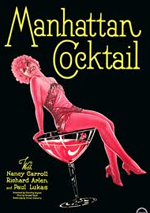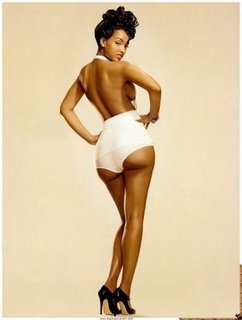During the past week, my blog stats registered approximately 2500 views, almost all of them because of Lindsay Lohan. On the highest day of LiLo frenzy, I had over 600 views for my post, “A Lesbian Looks Like…Lindsay Lohan?”
Despite my best efforts to ignore the LiLo frenzy, I too have been drawn back into its orbit. But let me make one thing clear: to those readers who’ve asked me to weigh in on the matter of Lohan’s sexual orientation, you can stop reading now because I won’t be offering my opinion about whether or not Lindsay is lesbian or bisexual, or in or out of the closet. In keeping with my previous analysis of her “post-gay” coming out, I remain agnostic on the question of her sexuality. What interests me is how people seem to be invested in uncovering the “truth” of Lindsay’s desire, and yet remain stuck having the same unproductive conversation over and over again. On message boards and elsewhere, it goes something like this:
Lindsay is a lesbian!!
No she isn’t, it’s just a stage! (Lindsay fan determined to heterosexualize her idol)
Hello, in case you haven’t noticed she’s been with a girl for months! Sam Ronson looks like a dude but he’s a girl. Lindsay is a lez!! (Idiotic straight guy #1)
No, she’s bisexual.
What a waste of a gorgeous girl! (Idiotic straight guy #2)
That makes her hotter! She’s bangin. (Idiotic straight guy #3)
So what if she is a lesbian or bisexual. She’s awesome and gorgeous! Leave Lindsay alone!
With a level of discourse this high, what’s left for your favorite sublimely femme queer theorist to say?! Well, really just this. There seem to be two dominant schools of thought about Lindsay’s sexuality, both of which turn on the “problem” of her femininity. The first position, which I’ve written about before, is that she couldn’t really be a lesbian because, hell, just look at her! The other position is the inversion of the first. It claims that Samantha Ronson is a real lesbian (hell, just look at her!) and Lindsay wouldn’t chose a girl like that unless she was herself really queer. In this reading, it’s the butch’s supposedly irrefutable lesbian appearance that provides evidence for the femme’s queerness. However, in both cases, queer femininity is fundamentally framed not just as a contradiction in terms but as a disappearing act.
In her song titled “Rumors,” (insert ironic aside of your choice) Lindsay sings, “I just want to be me.” But how do you come to terms with yourself in a world that doesn’t even see you?
Filed under: Celebrity, Queer Femininity | Tagged: bisexuality, butch/femme, femme invisibility, LiLo frenzy, post-gay |







“she couldn’t really be a lesbian because, hell, just look at her!”
yuck, i’ve definitely gotten *that* one before re: being bisexual and it’s very… annoying =|
Glad you stopped by. Given your own critique of labels as constraining, I was curious what you thought about this “is-she-or-isn’t-she” frenzy. xo -SF
i taught the film “bound” to my feminist film studies course on wednesday in order to have them engage with notions of queer women’s sexuality and gender identities, as well as to specifically look at butch and femme identities individually, and then collectively when coupled in relationships. i had students who looked at me so incredulously when i stated in lecture that because we, so often, hear butch and femme paired together, that femmes partner with femmes, butches with butches, and that butches and femmes also partner with folks who have different gender identities outside of b/f. one student (straight) was like, “two butches, i understand. i’ve seen that before, but femme and femme? i mean, how would you *know*?!”
i thought of this when reading your post because there’s enough speculation around whether or not lindsay lohan is queer *now*. can you imagine if she had partnered with someone more “feminine” or femme-identified? dear god. no one would believe her because how can that *be*?! “how would you *know*?!” this conversation in class was, granted, annoying, but we were able to have a fruitful conversation about in/visibility as a result. i was thrilled (read: shocked) to see an evolution in thought from the beginning of the class when b/f = heteronormative, to one at the end where most of them were capable of understanding and articulating why b/f, both separately and collectively, can be so very transgressive.
That student comment (“how would you *know*?) is so interesting. I’ve heard similar things, which have made me conclude that “knowing” is precisely what makes many heterosexuals find b/f both threatening and comforting. I’ve taught Bound too–Gina and Jennifer are so much fun to watch plus I like how the film rewrites the classic noir narrative about the femme fatale. Sounds like a great class! xo -SF
Ooooh, Bound makes my panties happy!
And yes, “how would you *know*?” is a very interesting and indicative of straight attitudes toward lesbians. Sometimes, though, I wonder if I understand it any better than the clueless well-meaning heteros. I get discouraged. Ah well. LiLo is cute anyway.
[…] Sublimefemme has an awesome post up about femme invisibility, prompted by the response to Lindsay Lohan. There seem to be two dominant schools of thought about Lindsay’s sexuality, both of which turn on the “problem” of her femininity. The first position, which I’ve written about before, is that she couldn’t really be a lesbian because, hell, just look at her! The other position is the inversion of the first. It claims that Samantha Ronson is a real lesbian (hell, just look at her!) and Lindsay wouldn’t chose a girl like that unless she was herself really queer. In this reading, it’s the butch’s supposedly irrefutable lesbian appearance that provides evidence for the femme’s queerness. However, in both cases, queer femininity is fundamentally framed not just as a contradiction in terms but as a disappearing act. […]
hussyred – “two butches, i understand. i’ve seen that before, but femme and femme?” funny to read that, because a (femme) friend of mine once said the exact opposite in a conversation about a butch couple. the comment has always stuck in my head because it struck me as so odd. i suppose both the idea of having “rules” about who can date, as well as the thought that those rules would be different for different genders.
Well… more from my personal experiences – I’ve definitely felt not obviously “queer enough” because I’m mostly femme, and I’ve wanted to find some way to get across to people that I’m queer without having to actually bring it up in conversation. Haven’t figured it out yet, but I’m wondering maybe I don’t need to.
I don’t know if I find invisibility an entirely negative thing. Sometimes I think if a person is pegged as a lesbian, from a superficial viewpoint, they become “that lesbian girl” and not much else. Maybe it’s better for queerness to be considered similar to a personality trait – something you can’t see right away but discover as you get to know the person.
I don’t really know if that’s what’s really under discussion here, but that’s my two cents…
Thanks for your comments on this and my “post-gay” post. When you say that invisibility isn’t entirely negative, I wonder if invisibility is really the word to describe what you’re trying to get at. One of the characteristic of features of gay oppression in modern Western culture has been the double bind of hypervisibility (“that lesbian girl”) vs. invisbility. Even if you don’t think that both are equally oppressive, I’m sure you’d agree with me that these should not be the only or primary forms of representation available to queer people! -xo SF
Good post. As a straight man, I’ve never found the energy to care much about other’s sexuality or their expression of it — and what I mean by that is that I think it’s interesting, and I think everyone deserves equal rights, but I just don’t understand everyone else’s obsession with what other people are doing romantically and in the bedroom.
Why do I care? How does it harm or even effect me? It doesn’t. It’s none of my business.
Growing up in the rural South, I was very unusual, and for this and many other reasons, I was none too popular.
Even before I started reading in sociology and feminist theory, it was obsessive to me that gender was just a performance, and one I never performed very well.
Why isn’t it so obvious to others?
Welcome, Mike. The word “just” in your last sentence is interesting to me, so I’ll use it too, but differently: just because gender is performative (an “act,” illusion, etc) doesn’t mean it’s any less intractable or powerful. Also, I think we all fail to “get gender right,” and it’s actually the mistakes that fascinate. -SF
I meant,”It was obvious to me.”
Too much caffeine, not enough brain cells.